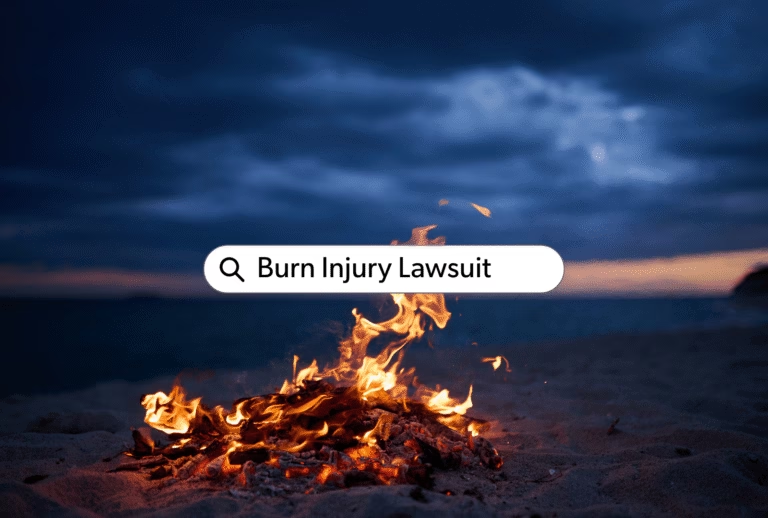A strong retaliation claim or case typically involves an employee who has experienced an adverse action(s) from their employer. This could include sexual harassment, workplace discrimination, unfair treatment, or any other type of workplace retaliation.
Retaliation occurs when an employer takes adverse actions against an employee for asserting or standing up for their legal rights in the workplace. To build a strong workplace retaliation claim, several key factors should be present:
- Protected Activity: Common examples of a workplace retaliation claim include:
- Reporting discrimination or workplace harassment.
- Complaining about illegal activities or unethical conduct within the company.
- Asking for reasonable accommodations for a disability.
- Exercising an employee’s rights under labor laws (such as filing a workers’ compensation claim or participating in union activities).
- Participating in a workplace investigation, such as providing information to HR or regulatory agencies.
- Adverse Action: There must be clear evidence of adverse actions taken by the employer as a response to the protected activity. Adverse actions can include:
- Termination or firing.
- Demotion.
- Pay cuts.
- Unwarranted disciplinary actions.
- Negative changes in job responsibilities or conditions.
- Harassment or hostile work environment.
- Retaliation Case Causation: To establish a strong workplace retaliation case, the employee must demonstrate a link between the protected activity being done and the adverse action against them. The timing of events and any direct evidence of retaliation, such as emails or witness statements, can be important to prove retaliation in the workplace.
- Documented Evidence: Strong retaliation cases often involve solid documentation. This includes records of the protected activity, any written complaints or reports, emails, text messages, and other relevant communications. Maintain a detailed record of events related to the protected activity retaliation.
- Witnesses: Witnesses who can corroborate your account of employer retaliation events can be invaluable. Coworkers, supervisors, or others who observed the protected activity or the subsequent adverse actions can provide critical testimony.
- Consistency in Treatment: If you can demonstrate a significant change in your treatment following the behavior of a protected activity, it can strengthen your case. For example, if you were previously treated well but faced retaliation after reporting sexual harassment, the case can be strengthened.
- Legal Consultation: It’s always smart to consult with an experienced employment lawyer. The attorneys with Lawyers for Justice, P.C. can help you assess the strength of your case, provide legal guidance, and represent your interests throughout the process.
- Documentation of Damages: If you suffered financial losses, emotional distress, or other damages as a result of retaliation or employment discrimination, keep records and documentation of these damages. This includes medical records, therapy bills, pay stubs, and other financial losses.
- Company Policies and Procedures: Familiarize yourself with your employer’s policies and procedures for reporting and addressing workplace issues, including retaliation. It’s best to follow the company’s processes if you want to prove retaliation or an adverse action.
- Persistence: Pursuing a retaliation case can be a lengthy and challenging process. Stay persistent and focused on the goal of seeking justice for the retaliation you’ve experienced. The hostile work environment lawyers at Lawyers For Justice, P.C. have experience proving adverse action from employers. The employment law attorneys at the firm help employees recover lost wages caused from discrimination or harassment and take retaliation claims seriously.
Retaliation laws can vary by jurisdiction and can be complex. Consulting with an LFJ employment attorney who specializes in retaliation cases is crucial to navigate the legal process effectively and increase your chances of success. They can help enforce state and federal laws opposing discrimination, sexual orientation discrimination, and other legally protected activity.
Retaliation Damages
Damages in an employment law retaliation case refer to the compensation or monetary awards that a victim of retaliation claims may be entitled to receive as a result of the harm they suffered due to the retaliatory actions of their employer. These damages are intended to compensate the victim for their losses and to deter employers from engaging in unlawful retaliation. The specific types and amounts of damages that may be available in a retaliation case can vary depending on the circumstances and applicable laws. Here are some common types of damages in retaliation cases:
- Back Pay: Back pay represents the wages and benefits that the employee would have earned if they had not been subjected to retaliation. This includes any missed salary, bonuses, overtime pay, and other fair compensation that the employee would have received.
- Front Pay: Front pay is an award of future wages and benefits that the employee is expected to lose as a result of the retaliation under California law. This may be awarded if the employee cannot return to their previous position or if their career advancement opportunities have been significantly affected.
- Emotional Distress Damages: Retaliation can cause emotional distress, including anxiety, depression, and other psychological harm while one tries to carry out their job duties. Victims may be entitled to compensation for the emotional suffering they experienced as a result of the retaliation.
- Punitive Damages: In some cases, punitive damages may be awarded. Punitive damages are intended to punish the employer for particularly egregious or willful acts of retaliation. They are not always available and depend on the specific laws of the jurisdiction.
- Attorney Fees and Costs: If the employee wins a retaliation lawsuit, the court may require the employer to pay the employee’s attorney’s fees and litigation costs.
- Compensatory Damages: Compensatory damages are awarded to compensate the victim for out-of-pocket expenses incurred as a result of the retaliation. This can include costs related to job searches, medical expenses, and other financial losses.
- Nominal Damages: In some cases, even if the victim did not suffer significant financial harm, the court may award nominal damages to recognize the wrongful nature of the retaliation.
It’s important to note that the availability and amount of damages can vary depending on the specific laws and regulations governing retaliation in your jurisdiction. Additionally, the strength of your case and the evidence presented can influence the outcome and the damages awarded.
If you believe you have been a victim of retaliation in the workplace, it’s essential to consult with an experienced employment attorney who can assess your case, guide you through the legal process, help gather evidence, and help you pursue the appropriate damages to which you may be entitled.
Retaliation – FAQ
how much is a retaliation lawsuit worth? Retaliation settlement amounts can vary widely depending on the specific circumstances of each case, with some settlements being significantly higher or lower than $20,000.
how to file a retaliation claim? Filing a retaliation claim can be done by the employee. The State of California Department on Industrial Relations offers a comprehensive checklist.
how long does a retaliation lawsuit take? There is no easy way to predict the duration of an employment law case like retaliation, but sometimes it can take up to several years. However, the pay-off is sometimes worth the effort.
can i sue my employer for retaliation? Employees, former employees, or job applicants who believe they have suffered retaliation or discrimination may file a retaliation complaint.
is retaliation illegal? Retaliation from engaging in a protected activity is a negative action that is prohibited under various state and federal laws, including the California Fair Employment and Housing Act (FEHA) and federal anti-retaliation provisions.
can i file an EEOC complaint after i quit? There are time limits. Typically, you need to file a discrimination complaint within 180 calendar days from the day any discrimination took place.
can you get fired for asking for a raise? There are technically no employment laws that prohibits employers from doing this, and each case is different. An employment attorney can help with you gathering evidence to see if there may have been an underlying issue for the termination, like racial discrimination, or another type of discrimination.
can i sue for being threatened at work? Typically, if employees can present evidence that shows they were unable to complete their work because of offensive behavior or hostile work conditions, they may be able to sue.
is retaliation in the workplace illegal? An employer’s adverse action, like retaliating against an employee and firing them for a harassment complaint, for example, could be wrongful termination. And that is typically not legal.
can i sue my employer for retaliation? Punishing employees unjustly can be illegal. If an employer punishes you with termination for a protected activity, you can file a retaliation complaint with a government agency, and even speak to an employment lawyer to see more options.
true or false? it is against the law to punish someone for complaining about harassment? True. It is against the law to punish a worker if the employee files a complaint about discrimination or harassment.
can you be fired for requesting a transfer? California is an at-will employment state, so technically, a worker can be terminated at any point, unless there is a written contract that stipulates transfer details otherwise.
is threatening someone’s job illegal? A threat alone may not be substantial evidence to support a violation of state law, but if the harassment is persistent enough and you are unable to work due to it, you could seek legal counsel.
is retaliation considered a form of unlawful discrimination? Because retaliation is an intentional act, it is a form of “discrimination” because the complainant is being subjected to differential treatment.
can i be fired for asking for a raise? An at-will employment arrangement means that employees can be fired for any reason. Call LFJ for a free consultation for more information on your specific circumstance.
what to do if you think your boss is trying to get rid of you? You can always request a performance review with your boss to ascertain any areas of your work performance that need improvement. This may show your boss how serious you are about your position.
can you sue your boss for bullying? While there are not explicit laws that prohibit bullying, if you are being harassed for engaging in protected activities or because you are part of a protected class, you should alert human resources or pursue legal action if the harassment is persistent and disruptive to your job.
can a manager be fired for retaliation? There are consequences for retaliatory behavior. An employment law attorney can help you better understand the nuances of the consequences for managers regarding retaliation. Call LFJ for a free consultation.
what is considered unfair treatment in the workplace? Unfair treatment in the workplace refers to any type of discrimination, bullying, or harassment that negatively affects employees. Discrimination can occur based on a person’s race, gender, age, or disability, leading to unequal opportunities and treatment.
can a company demote you without cause? Legally, yes.
what constitutes a change in working conditions? It depends, but usually it can refer to a change that is significant in terms of amount, degree, or impact of one’s position.
is targeting an employee illegal? If the targeting is because of workplace discrimination, it could be considered retaliation. A hostile work environment occurs when lewd behavior or targeting a protected class disrupts an employe’s work or harms their career progress.
Last Updated on December 22, 2025



